Introduction
Newfoundlands are often referred to as "gentle giants".
Here’s why their temperament is ideal for families:
- Patient and Tolerant: Newfoundlands are naturally patient, making them a great match for families
- Protective Instincts: They are highly protective to look after the members of their family
- Calm and Composed: This helps them blend into family life without overwhelming the household
Best Practices:
- Although Newfoundlands are gentle
- Essential to socialize them early to ensure they are comfortable around children
2. Interaction with Children
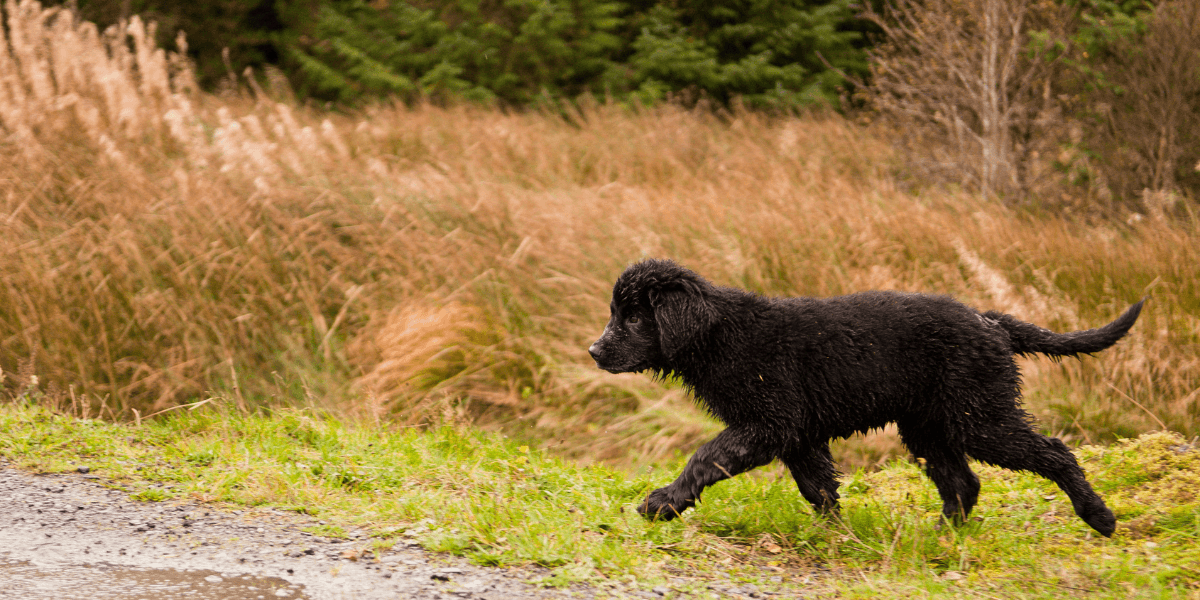
How do Newfoundlands interact with kids?
Here’s a closer look at how they bond with children:
- Playful Yet Gentle: Newfoundlands love playing with children and are often very aware of their own size
- Nanny-like Behavior: Newfoundlands are known to act almost like nannies
- Adaptability to Family Dynamics: They adjust well to different family dynamics and are just as content
Advice:
- Always supervise interactions between any dog and small children
- Teaching kids how to respect the dog’s space and boundaries is crucial
3. Balancing Play and Calmness
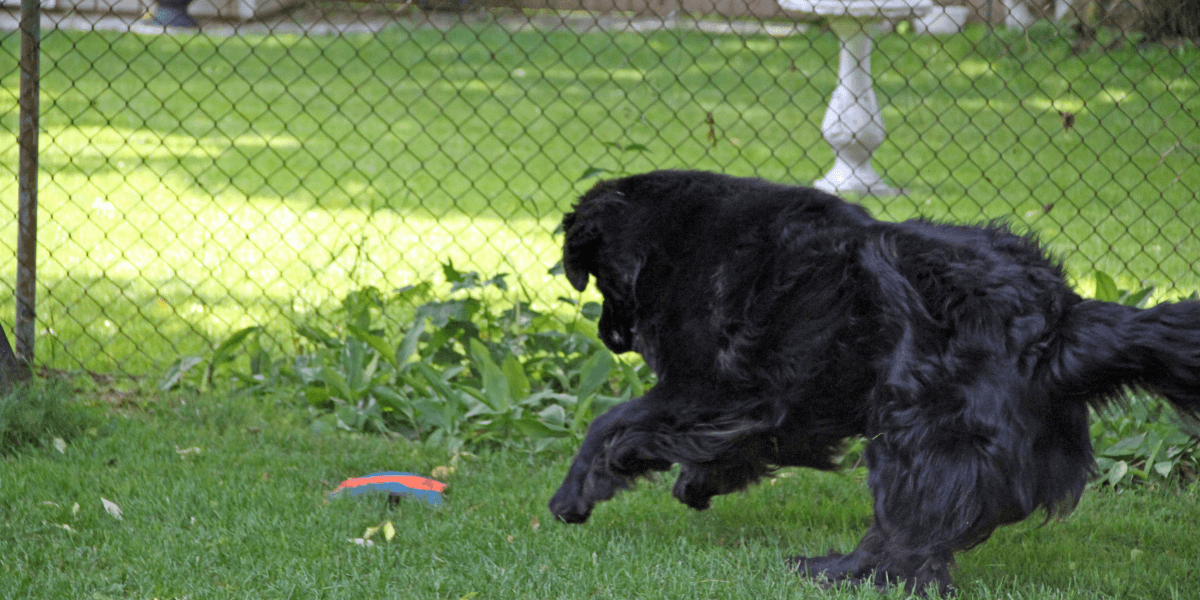
One of the keys for families is whether a dog’s energy level matches their lifestyle
Newfoundlands are relatively low-energy dogs but still enjoy daily activities:
- Moderate Exercise Needs: Newfoundlands require regular exercise, such as daily walks and some playtime
- Indoor Companions: Making them suitable for families who might not have the time for constant activity
- Swimming Enthusiasts: Newfoundlands are natural swimmers and enjoy water activities
Best Practices:
- Be sure to provide them with enough mental and physical stimulation
- To keep them happy and healthy
4. Grooming Needs
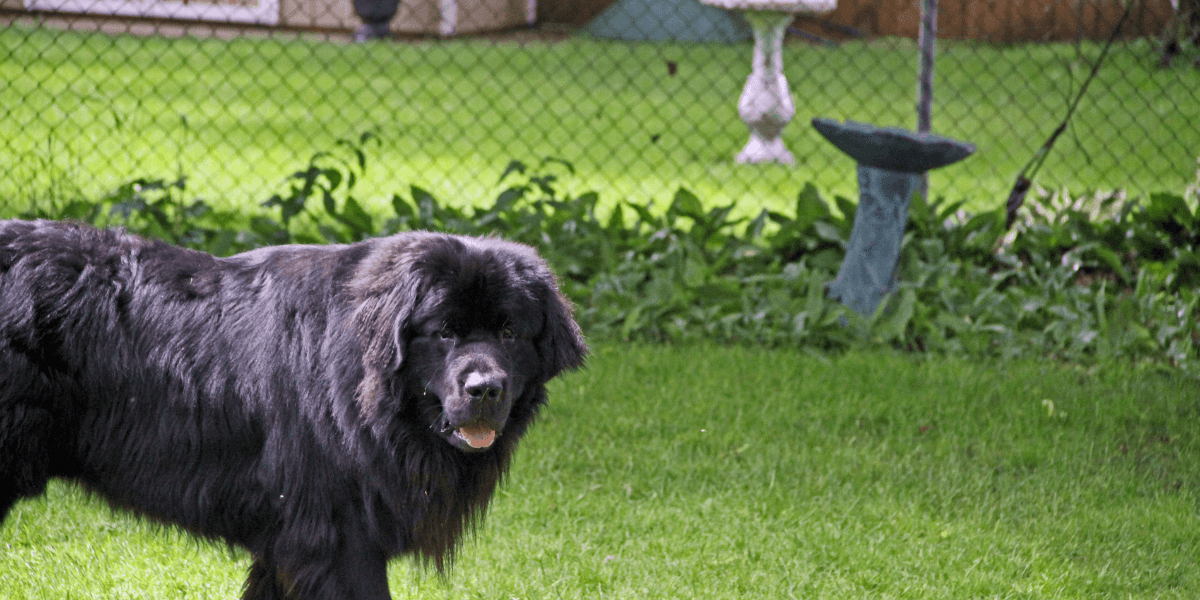
Grooming is a significant aspect of owning a Newfoundland.
Especially if you have kids who might be sensitive to shedding or dander:
- Heavy Shedders: Newfoundlands shed a lot, particularly during seasonal changes
- Drooling and Slobber: This is something families need to be prepared for, especially when children are involved
- Bathing and Hygiene: Newfoundland need regular bath, but they don’t require frequent grooming beyond brushing
Advice:
- Invest in high-quality grooming tools and be consistent with grooming routines
- To keep shedding and drooling manageable
5. Health Considerations
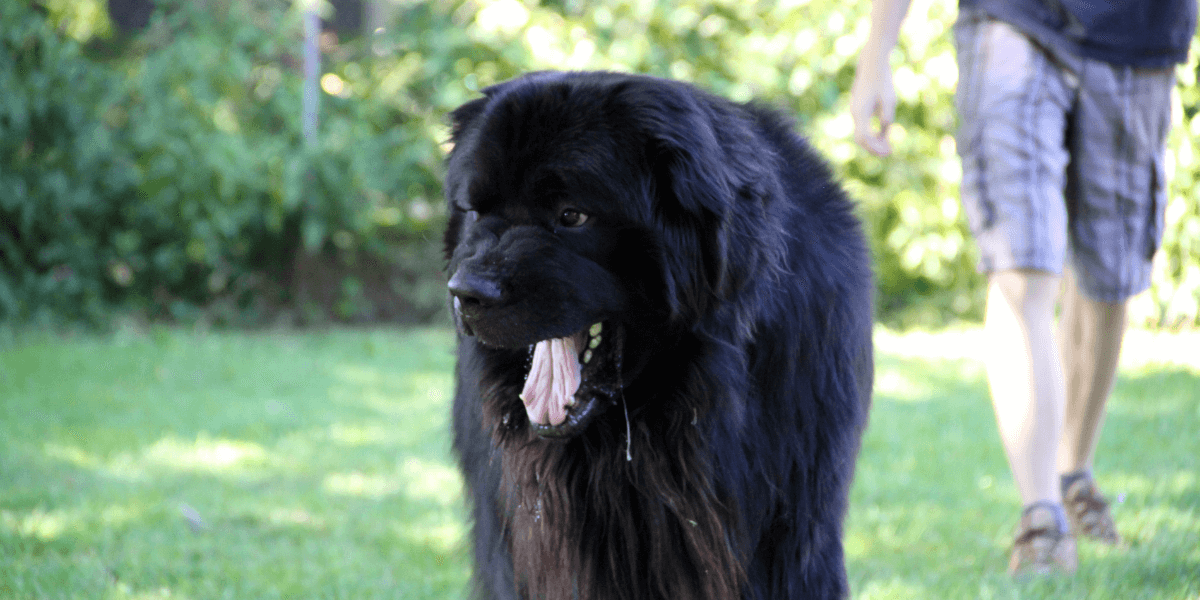
Newfoundlands are generally healthy.
But are prone to certain conditions that could affect their interaction with kids.
Here’s what to keep in mind:
- Hip Dysplasia: A common issue in large breeds, hip dysplasia can affect mobility
- Heart Issues: Some Newfoundlands are susceptible to heart problems
- Joint Support: Maintaining a healthy diet and weight is essential to avoid strain on their joints
Best Practices:
- Teach children how to be gentle with their Newfoundland
- Especially around the hips and joints, to prevent discomfort for the dog
6. Training and Socialization
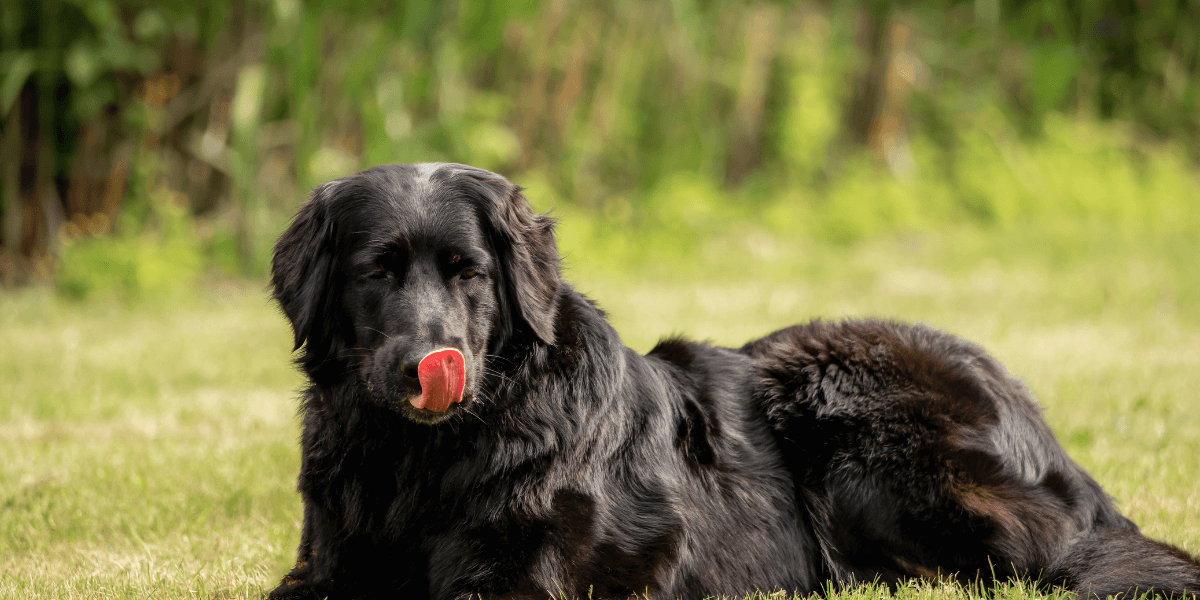
Training a large dog like a Newfoundland is essential for safe interactions with kids.
Thankfully, their eagerness to please makes training relatively straightforward:
- Obedience Training: Focusing on commands like "sit," "stay," and "down" to manage their large size
- Socialization: Expose your Newfoundland to different environments, people, and situations early
- Kid-Friendly Training: Teach your dog to be gentle during play, and avoid jumping or roughhousing
Advice:
- Use positive reinforcement techniques
- Involve your children in training sessions to build a strong bond between them and the dog
7. Space Requirements

While Newfoundlands are adaptable, they do require space due to their size:
- Indoor Space: A spacious living area is ideal
- Outdoor Space: Having a backyard is a bonus, but not a strict requirement
- Apartment Living: Although it’s possible for Newfoundlands to live in apartments
Best Practices: Ensure your home is set up for a large dog.
FAQs
1. Are Newfoundlands patients with kids?
- Yes, they are known for their gentle and patient nature
2. Is the Newfoundland a good family dog?
- Absolutely! Newfoundlands are loyal, loving, and great with families
3. Do Newfoundlands protect children?
- Yes, they’re naturally protective and watchful around kids
4. Are Newfoundlands good with toddlers?
- Their calm temperament makes them reliable around young children
5. Why are Newfoundlands good with kids?
- Their gentle, patient, and protective nature makes them ideal
6. Do Newfoundlands get along with other pets?
- Yes, they’re typically friendly and social with other animals
7. Are Newfoundlands Good with Kids in small homes?
- They do better in larger spaces but adapt if exercised enough
Conclusion
- Newfoundlands are gentle, patient, and protective, making them excellent with kids
- Their calm temperament and loyalty ensure they thrive in family environments
- Newfoundlands Good with Kids, they’re a reliable, family-friendly breed
- Their size can be intimidating, but their gentle nature is perfect for children.
- Proper training and socialization enhance their suitability as kid-friendly pets
- Families seeking a devoted companion will find Newfoundlands to be an ideal choice
- Overall, Newfoundlands are a loving, safe breed for families with children
Did you find this breed analysis helpful?
Share your thoughts and experiences in the comments below!
References
For more information on Are Newfoundlands Good with Kids?, check:
- Are Newfoundlands Good with Kids?
- Orthopedic Dog Beds for Large Dogs: A Comprehensive Guide
- Best Dog Beds for Seniors: Orthopedic vs. Memory Foam Guide
- Are Newfoundlands Good With Kids? What Parents Need To Know
- Newfoundland Facts You May Not Know
Thank you!




